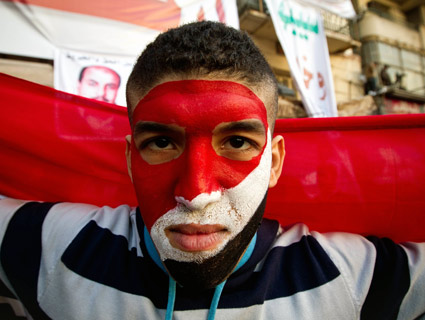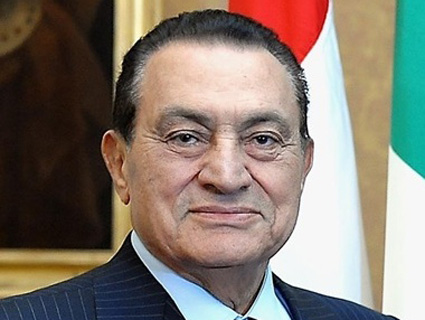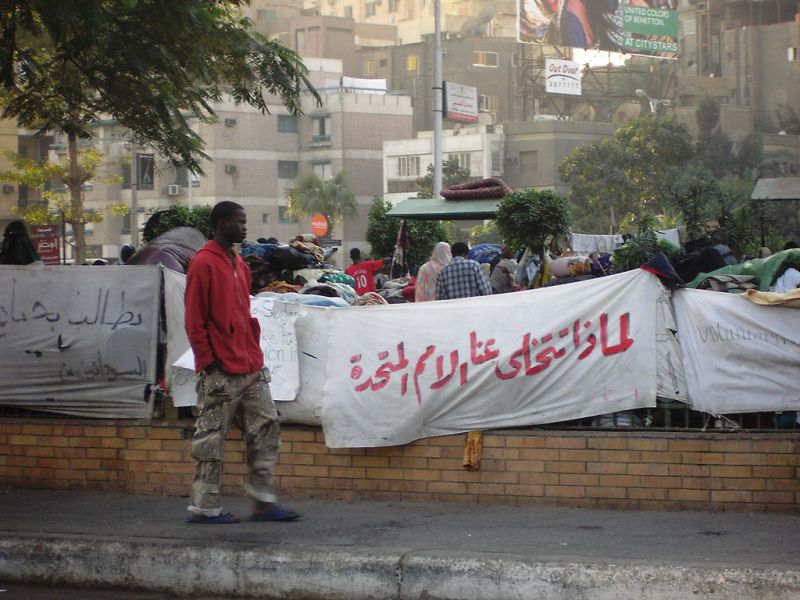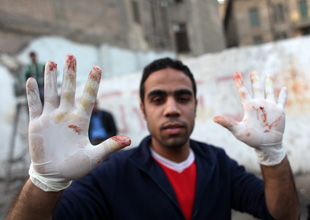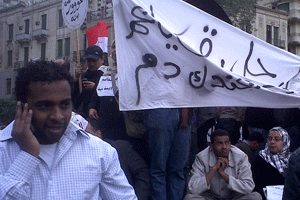
<a href="http://www.flickr.com/photos/89031137@N00/5401219107/sizes/l/in/set-72157625939311590/">monasosh</a>/Flickr.
On January 25, Egyptian human rights activist Hossam Bahgat stood in protest with some 15,000 others in Cairo’s Tahrir Square (get MoJo‘s up-to-date coverage on this here). Mobile phone reception was intermittent until around midnight, when the lines were largely restored. That is, except for Bahgat’s phone. “Since then my SIM card has been basically dead, not even getting any signal,” he says. Reports as early as Wednesday mentioned that the government may have shut down access to Twitter and Facebook, and disabled mobile phone towers. Around 4 a.m. on Friday, Egypt underwent a nationwide internet and telecommunications blackout. An interview with Bahgat, however, reveals that Vodafone, and potentially Egypt’s other mobile network operators
, may have selectively severed phone access for human rights defenders, lawyers, and political activists starting on Tuesday and continuing into the present.
“That’s certainly a reason for concern,” he says.
According to Bahgat, the founder and director of the Egyptian Initiative for Personal Rights, what happened to his phone service also happened to at least four other human rights activists and lawyers. “People trying to reach us have been getting the message that this number is incorrect,” he told me. There seemed to be only one quick way around the blockage: Shortly after noticing their mobile service was cut off, Bahgat and his colleagues purchased new phone lines.
Bahgat notes that Egyptian law gives government agencies the right to interfere with the work of private providers for the purposes of national security. “But as for the decision to suspend the phone lines selectively and the phone lines of human rights defenders, this is morally unjustifiable,” he says. Vodafone, which serves Bahgat along with 43% of Egypt’s mobile phone users, announced Saturday that they “had to comply with the demands of authorities.” But Bahgat plans to file a lawsuit against the company for breaching consumer protections, overriding activists’ right to communicate, and arbitrary interference with activists’ right to privacy.
Of course, in order to file the suit, Bahgat will have to wait until the local political situation stabilizes: With the on-going leadership overhaul and curfew intact since Friday, the courts “have shut down indefinitely.” “We’re not sure when the courts will reopen and what type of situation we will find ourselves in,” says Bahgat. If and when the courts do reopen, he is prepared for action. “This is something that I plan to pursue as soon as possible,” he says. “We don’t want this to become a precedent where some individuals are targeted and have their phone lines suspended because of their activism.”
